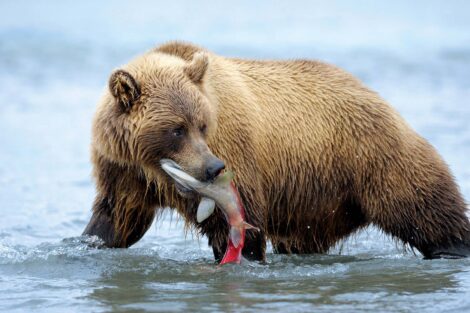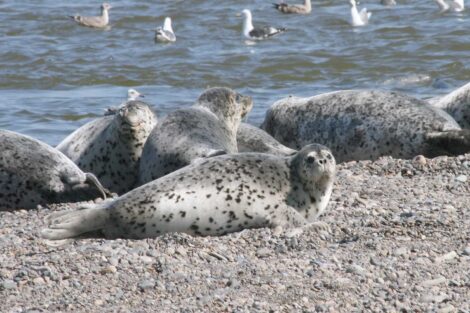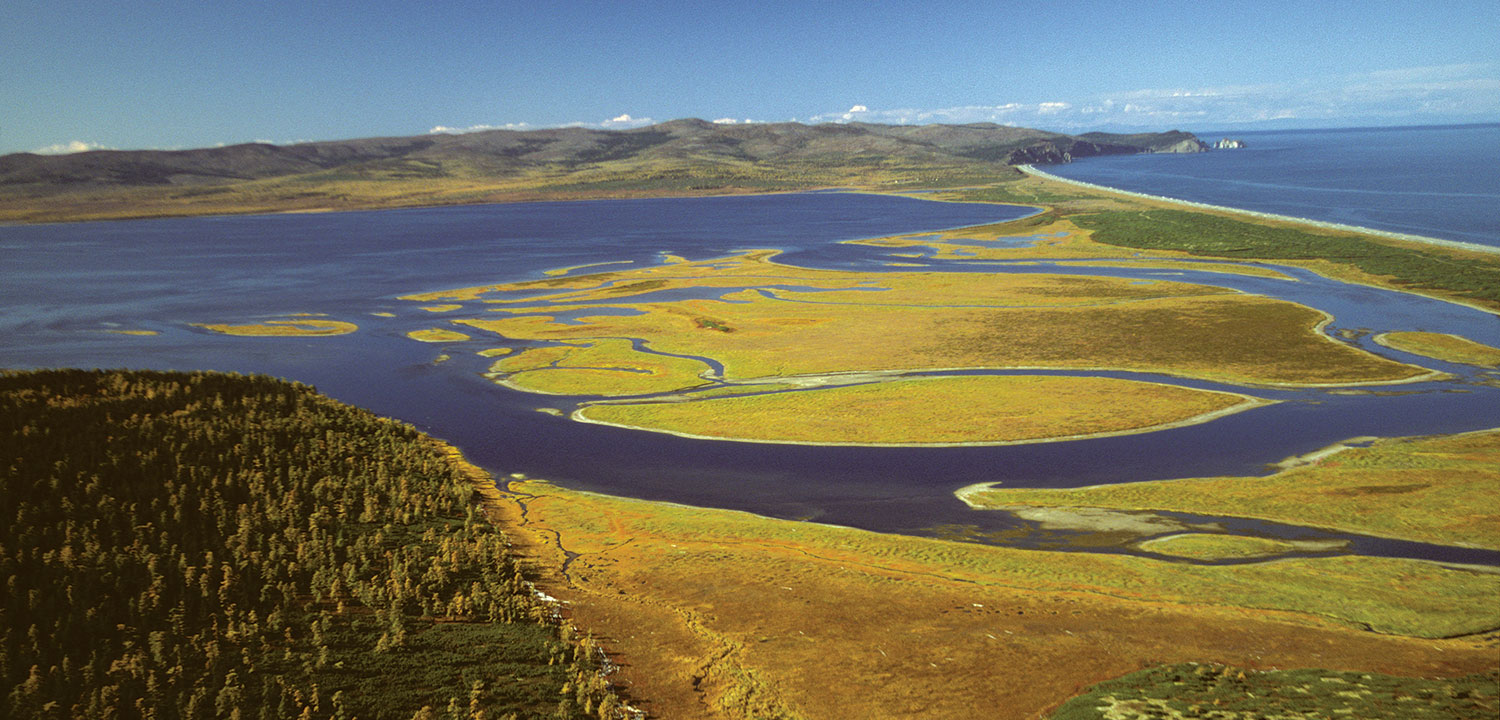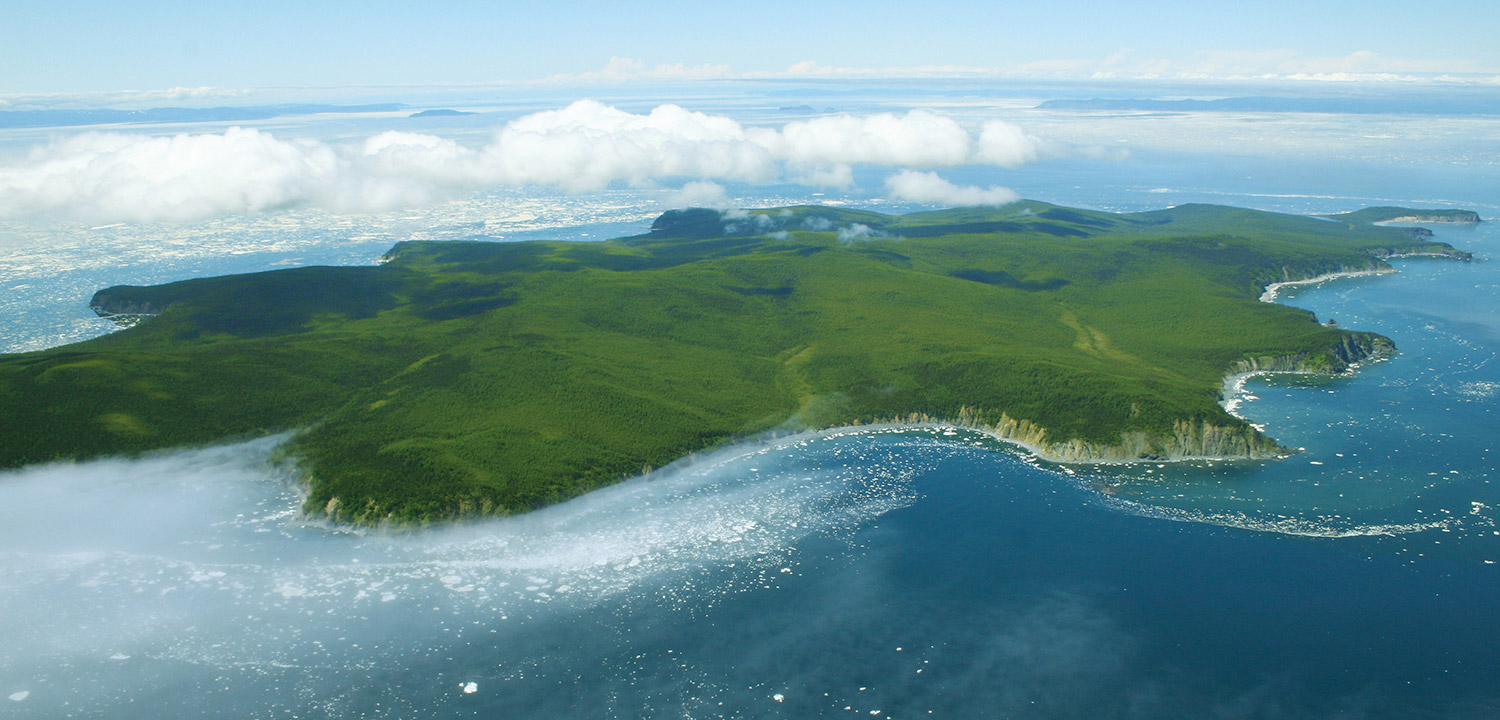Permanent protection secured for Shantar Islands archipelago of over 1.2 million acres.

Dmitry Medvedev, the Chairman of the Russian Federation, signed a federal decree to establish the Shantar Islands National Park that will protect a total of 1,273,828 acres including the entire Shantar Island Archipelago and its surrounding marine waters.
The Shantar Archipelago is a group of islands in the western Sea of Okhotsk in the Russian Far East. The Shantars host a diverse mix of forest and plant communities including Ayan spruce, woolly birch, and mountain ash as well as northern taiga and mountain tundra.
The National Park was established to preserve the unique terrestrial and marine ecosystems which support a wide variety of fish and wildlife including pink and chum salmon populations. The Shantars’ Srednyaya River hosts the only population of rainbow trout in the Russian Far East outside of the Kamchatka Peninsula.
“The creation of Shantar Islands National Park is a historic conservation milestone and establishes a protected sanctuary for an entire pristine salmon ecosystem, from its headwaters in the mountains to its highly productive marine environment,” said Guido Rahr, President and CEO of the Wild Salmon Center.

The boundaries of the National Park provide a buffer of a minimum of two (and up to five) kilometers around each island and will help conserve a variety of marine mammals including Western Pacific grey whales, bowhead whales, and bearded seals.
The islands are also inhabited by a high density of terrestrial mammals including brown bear, caribou, red fox, sable, and river otter. Additionally, over 240 species of birds live on or migrate through the Shantars, many of which are endangered, including the Blakiston’s fish owl, osprey, Steller’s sea eagle and the Siberian Grouse.
Alexander Kulikov of the Khabarovsk Wildlife Foundation, whose leadership was instrumental in establishing the National Park, said, “this effort is a successful example of collaborative partnerships among non-governmental organizations, federal and regional governments, and the communities who place a high value on protecting the Shantars’ outstanding biodiversity.”
Looking forward, Wild Salmon Center, Khabarovsk Wildlife Foundation, World Wildlife Fund and other partners will help oversee the management of Shantar Islands National Park and will work to promote regional eco-tourism and stewardship opportunities.
Wild Salmon Center has been working with partners to conserve key salmon ecosystems in the Khabarovsk Region since 2000. In partnership with the Khabarovsk Wildlife Foundation, the Wild Salmon Center helped establish the Koppi River Preserve in 2010 that protects 94,000 acres of prime habitat for fish and wildlife, including the endangered Sakhalin taimen and the Siberian tiger.

Hero Image
